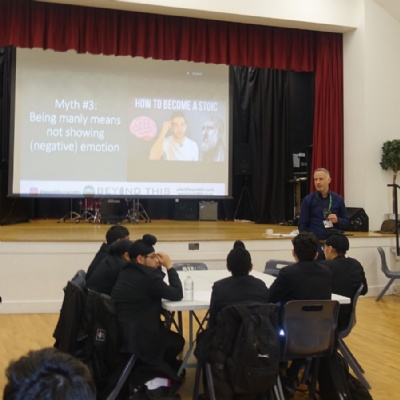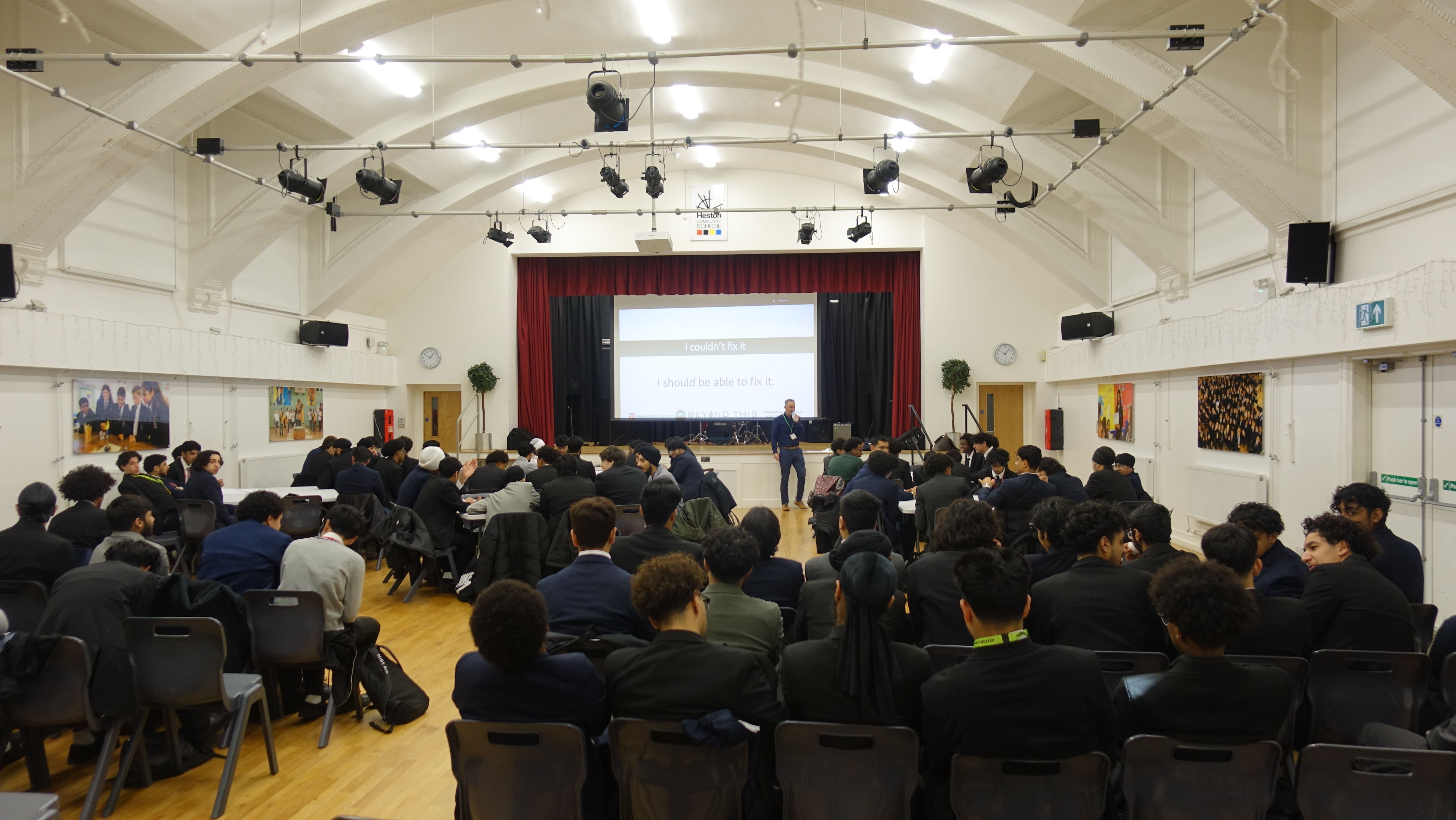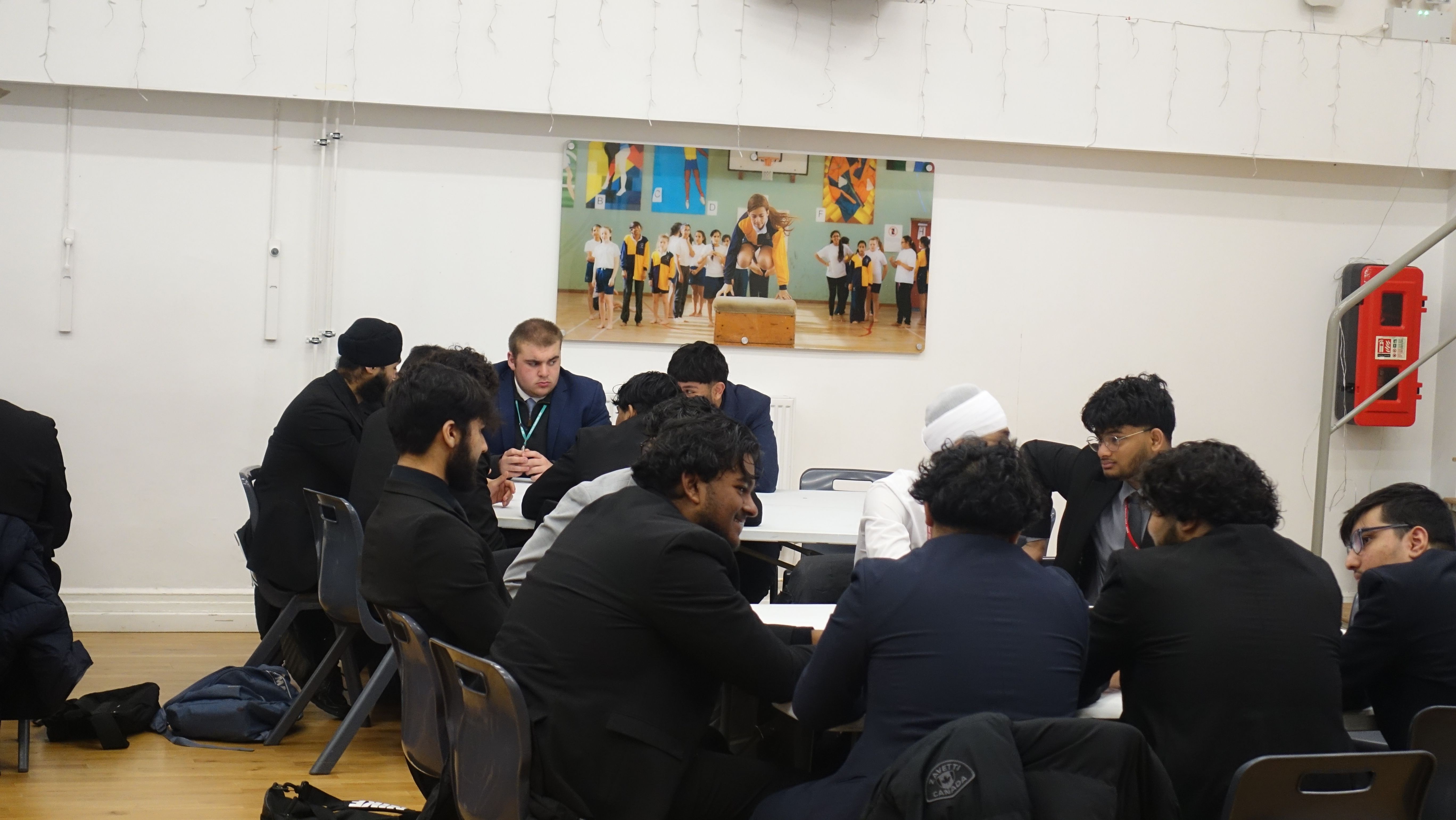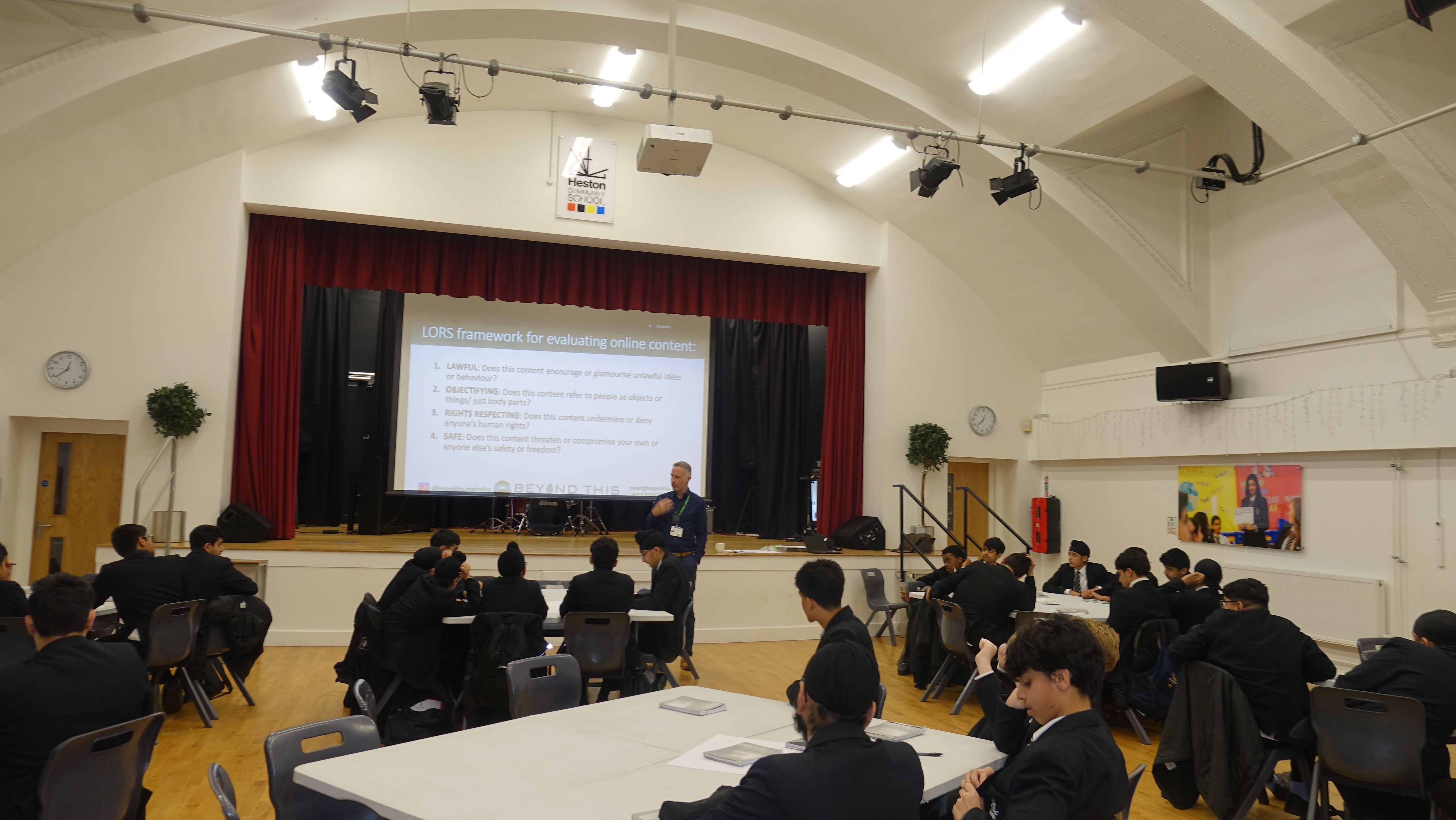Peter Radford Masculinity and Misogyny Workshop

Peter Radford delivered a workshop on Masculinity and Misogyny to Year 9, 10, 12 and 13 boys.
This crucial workshop provided a valuable opportunity to challenge and reshape harmful attitudes toward masculinity and misogyny.
Many boys grow up surrounded by societal norms and peer pressures that reinforce toxic notions of masculinity — ideas that can lead to unhealthy behaviours, stereotypes, and a lack of emotional expression. By addressing these issues head-on, the workshop helped the boys understand how these ingrained beliefs can harm both themselves and others, encouraging healthier, more respectful relationships.
The workshop also fostered critical thinking about gender equality and promoted the importance of empathy, kindness and accountability.
In a world where misogyny continues to manifest in various forms, delivering this workshop helped equip the boys with the tools to recognise and reject such behaviours, paving the way for a more inclusive and respectful society.
Ms S Jassal [Acting AHT]
Student Statements:
After attending the workshop, I realised that being a man was not just about my own actions, but also helping others around me realise the way their actions come across. I did not think about the fact that our actions can be perceived in different ways to what we think they come across.
The workshop made me realise just how much of our lives are based on stereotypes, and it made me wonder how we would be different if these stereotypes weren't normalised. I hadn't realised how many of my characteristics and interests were influenced by stereotypes.
The workshop also made me realise that the traditional views of masculinity are not always the best views, and that we should be careful how we present ourselves and what values we adhere to.
I think that I will be a lot more mindful of other people and their behaviours, and I will end up judging people less subconsciously, which will help me interact more positively with others.
Before the workshop, I was also influenced by the many traditional views of masculinity. I now see that most of these views are not based on reality, but more towards societal expectations. I think we can be a lot more mindful of behaviours that were previously deemed as less masculine, such as portraying emotion.
I was surprised at how embedded negative stereotypes about masculinity were in our behaviours and values, and I was shocked to hear statistics about masculinity affecting women. I now realise that even simpler views can turn into harmful traits.
I think that we can be a bit more considerate towards many people and that we should also challenge ideas about masculinity that have the potential to easily turn harmful in order to improve things for everyone.
The workshop definitely has the potential to create a more positive environment. This is because it has enlightened us and opened our eyes to seeing our behaviour from the perspective of someone else's view. This will stop many behaviours that many boys and men do not realise are harmful or aggressive, as many people don't intend to harm someone or come across in that way.
Sahil Kotak 10R
After attending the masculinity workshop, I found that many of the ideas reinforced what I already knew. It highlighted that boys and men don’t have to fit a certain mould and encouraged us to think about different perspectives.
I learnt that we all have different views. Before the workshop, I thought boys should act a certain way, but now my view has slightly changed. For example, I realise that not all boys have to be strong.
I think it should be talked about more, so people can understand different views on masculinity.
I think it creates a better environment because it allows people to discuss masculinity more and be more aware of what it is.
Bhavesh Balajothy [10W]
After attending the masculinity workshop, my understanding of what it means to be masculine has changed. I now realise that masculinity is not about being extremely strong or suppressing emotions, as that is unhealthy. Most importantly, it is about being a kind and respectful person. It is also okay to feel scared because fear is a natural human emotion. Trying to hold onto emotions can eventually lead to a breakdown.
The workshop made me think differently about the way society expects men and boys to behave. I now understand that not being strong is not a major issue and that it is perfectly fine to feel afraid or upset. There is nothing wrong with showing that you are unhappy or scared.
It also changed how I view the pressures placed on men and boys. I now realise that these expectations are not as important as they seem, and it is okay to express emotions. Being incredibly muscular or strong is not necessary, and not every boy has to fit that stereotype.
The workshop has also changed how I interact with others and how I view gender roles. It has made me more aware of how stereotypes, like being very strong and holding onto emotions, shape our behaviour. Removing these expectations allows for more positive interactions.
Before the workshop, I believed that boys were expected to be strong, go to the gym, and focus on building muscle. Now, I see that these expectations are not essential—it should be a personal choice whether someone wants to become physically strong or not.
The masculinity workshop helped me understand these issues in more depth because it was very thorough. I would like to see more people acknowledging that suppressing emotions is harmful and that it is okay not to be physically strong. These changes could relieve some of the pressures boys and men face.
What we discussed in the workshop has the potential to create a more positive environment in school. It is a crucial and valuable discussion that can improve the way we interact with one another.
Jeevan Syan 10Y
The session provided a safe space to discuss this sensitive topic openly. The examples and facts shared were really interesting and made me think more deeply about the consequences. It was an eye-opener to see the connection between media influence and gender stereotypes, which gave me a new perspective on the topic.
Ridwan Fleary Yr13
It was really interesting to see the differences in birthday cards for boys and girls and how they reinforce gender stereotypes. It highlighted the pressure society puts on us to view males as bread winners and females as needing protection.
Vajahat Hussain Yr12



